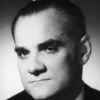Alberto Moravia

Alberto Moravia
Alberto Moravia, born Alberto Pincherle, was an Italian novelist and journalist. His novels explored matters of modern sexuality, social alienation and existentialism. Moravia is best known for his debut novel Gli indifferentiand for the anti-fascist novel Il Conformista, the basis for the film The Conformistdirected by Bernardo Bertolucci. Other novels of his adapted for the cinema are Agostino, filmed with the same title by Mauro Bolognini in 1962; Il disprezzo, filmed by Jean-Luc Godard as Le Mépris; La Noia, filmed...
NationalityItalian
ProfessionNovelist
Date of Birth28 November 1907
CountryItaly
I like to compare my method with that of painters centuries ago, proceeding from layer to layer.
Modern man-whether in the womb of the masses, or with his workmates, or with his family, or alone-can never for one moment forget that he is living in a world in which he is a means and whose end is not his business.
An uncertain evil causes anxiety because, at the bottom of one's heart, one goes on hoping till the last moment that it may not be true; a certain evil, on the other hand, instills, for a time, a kind of dreary tranquillity.
War has become an affair of machines...and soldiers are little more than clever mechanics.
I do not foresee a time when I shall feel that I have nothing to say.
There are many reasons for keeping a diary: to make a note of facts that one considers important; to open one's heart, to give vent to one's feelings, to make confessions; from the instinct of economy which sometimes encourages a writer to make good use of even the smallest crumbs of his life, so that he may have one more book to publish; or again from vanity and self- satisfaction.
Loyalty, Signor Molteni, not love. Penelope is loyal to Ulysses but we do not know how far she loved him...and as you know people can sometimes be absolutely loyal without loving. In certain cases, in fact, loyalty is form of vengeance, of black-mail, of recovering one's self-respect. Loyalty, not love.
A writer survives in spite of his beliefs.
This thought strengthened in me my belief that all men, without exception, deserve to be pitied, if only because they are alive.
Every true writer is like a bird; he repeats the same song, the same theme, all his life. For me, this theme as always been revolt.
When you aren't sincere you need to pretend, and by pretending you end up believing yourself; that's the basic principle of every faith.
Because the world to-day is so constructed that no one can do what he would like to do, and he is forced, instead, to do what others wish him to do. Because the question of money always intrudes—into what we do, into what we are, into what we wish to become, into our work, into our highest aspirations, even into our relations with the people we love!
In life there are no problems, that is, objective and external choices; there is only the life which we do not resolve as a problem but which we live as an experience, whatever the final result may be.
Yes, one uses what one knows, but autobiography means something else. I should never be able to write a real autobiography; I always end by falsifying and fictionalizing—I’m a liar, in fact. That means I’m a novelist, after all. I write about what I know.